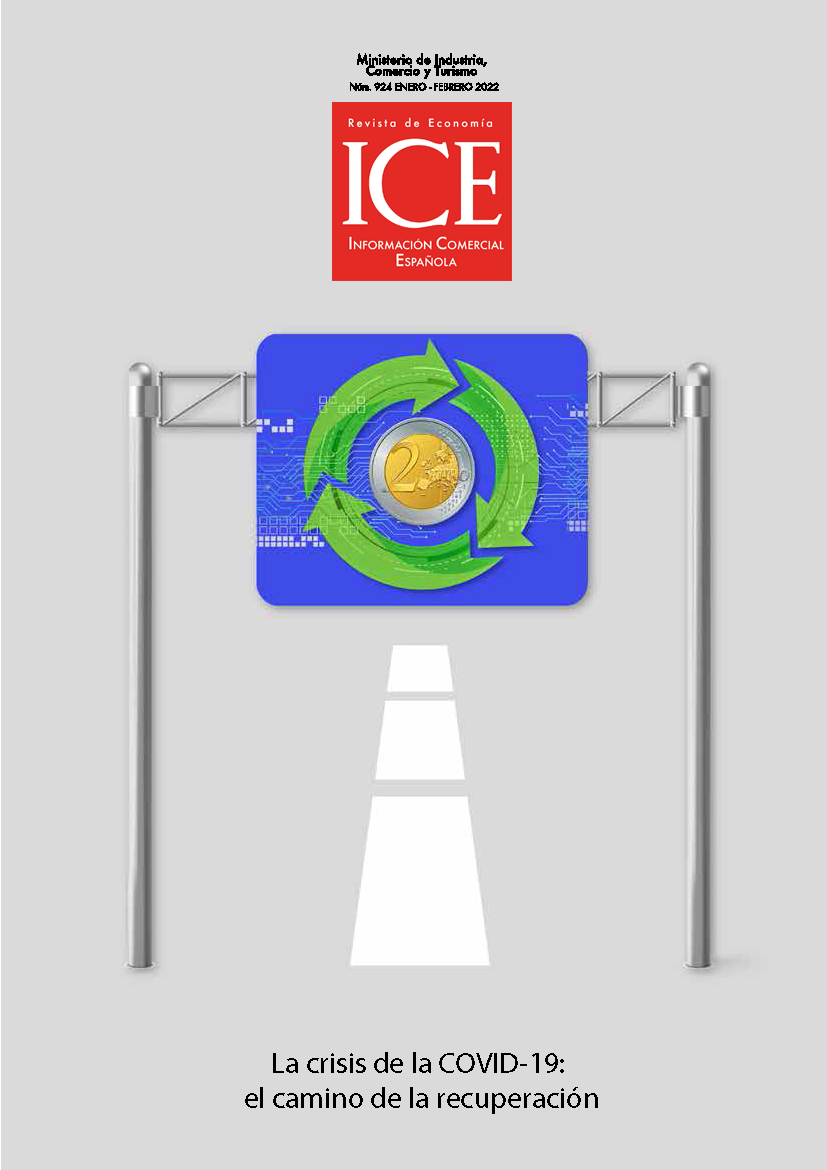Fiscal policy responses at the international level
##plugins.themes.bootstrap3.article.sidebar##
Downloads
##plugins.themes.bootstrap3.article.main##
The outbreak of the COVID-19 pandemic has caused a considerable global economic contraction, although the magnitude of the impact has been uneven. However, the response of economic policies to the crisis has been dazzling and of an unprecedented magnitude in the recent past. Overall, the contribution of the discretionary component has been larger in the United States than in the eurozone. While in the United States it could mean an increase in the size of the welfare state, in the eurozone it could represent a significant advance in the construction of the Fiscal Union and in the improvement of economic governance.
##plugins.themes.bootstrap3.article.details##
Alloza, M., Andrés, J., Burriel, P., Kataryniuk, I., Pérez, J. J. & Vega, J. L. (2021). La reforma del marco de gobernanza de la política fiscal de la Unión Europea en un nuevo entorno macroeconómico. Documentos Ocasionales del Banco de España n.º 2121.
Blanchard, O. (2020, March 30). “Whatever it takes.” Getting into the specifics of fiscal policy to fight COVID-19. PIIE, Peterson Institute for International Economics, Blog.
Codogno, L. & van den Nord, P. (2020). Assessing Next Generation EU. ACES, Amsterdam Centre for European Studies, Research Paper No. 2020/09.
Comisión Europea. (2020a). Coordinated economic response to the COVID-19 Outbreak. COM(2020) 112 final.
Comisión Europea. (2020b). On the activation of the general escape clause of the Stability and Growth Pact. COM(2020) 123 final.
Comisión Europea. (2020c). Marco Temporal relativo a las medidas de ayuda estatal destinadas a respaldar la economía en el contexto del actual brote de COVID-19. COM(2020) 1863 final.
FMI, Fondo Monetario Internacional. (2021). World Economic Outlook October. Recovery During a Pandemic: Health Concerns, Supply Disruptions, and Price Pressures.
Krugman, P. (2020, April 1). Notes on the Coronacoma (Wonkish). This is not a conventional recession, and GDP is not the target. The New York Times Opinion.
Martínez, C. & de Manuel, M. (2020). The EU fiscal rules during the Juncker Commission. Implementation, reform and the challenges ahead. In F. Fernández Méndez de Andés (Ed.), The Euro in 2020. A Yearbook on the European Monetary Union (pp. 147-181). IAFF/FEF and Fundación ICO.
Martínez, C., Feás, E., Otero, M. & Steinberg, F. (2021). Reforming the governance of the Economic and Monetary Union: the issues. Real Instituto Elcano, Working Paper No. 10.
Muggenthaler, P., Schroth, J. & Sun, Y. (2021). The heterogeneous economic impact of the pandemic across euro area countries. ECB, European Central Bank, Economic Bulletin Issue 5.
Pisani-Ferry, J. (2020). European Union recovery funds: string attached but not tied up in knots. Bruegel, Policy Contribution No. 19.
Price, R. W. R., Dang, T. T. & Botev, J. (2015). Adjusting Fiscal Balances for the Business Cycle: New Tax and Expenditure Elasticity Estimates for OECD Countries. OECD, Organisation for Economic Co-operation and Development, Economics Department, Working Papers No. 1275.


